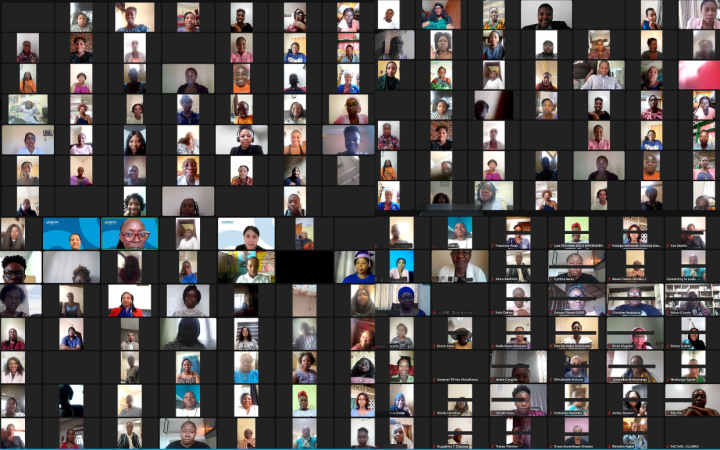Civilians and police officers working side by side in an operational environment – while commonplace nowadays within the Queensland Police Service (QPS), this has not always been the case.
In 1996, a decision was made to train and include civilian staff members in our Communications centres, where their roles included answering emergency calls and dispatching police crews.
Some years on, we are now celebrating 25 years of civilian communications operators.
Ms Liana Rendace, who was part of the first cohort of civilian operators and who is still with the Service said being the firsts was an exciting and somewhat daunting journey.
“We were the brave pioneers, paving the way for future public servants back then,” Ms Rendace said.
“We knew there were sworn officers who weren’t sure we were up to the job, but we were full of enthusiasm and really wanted to be there. So I’m glad to say we were able to prove them wrong.
“To be part of the first group was a real privilege.
“The trainers and officers we were working with were very welcoming and became great mentors.”
The first civilian operators were trained in 1996 over two courses, each with 20 people in them.
A/Superintendent Scott MacQueen, Commander of the Communications Group said the capabilities of civilian operators had grown over the years.
“We started with 40 at a time when we took around 400,000 calls for service across the state in a year,” A/Superintendent MacQueen said.
“We now have 280 civilian staff and we have taken around 750,000 calls for service this year alone, which has grown around 30 per cent in the last four/five years.
“These civilian staff members now make up over half of the Communications Group workforce.”
In the original cohorts in the late 90s, technology wasn’t quite what it is today. Ms Rendace said they used refidexes and shared one screen while navigating calls and dispatching.
“The calls where we were would stay on the phone with the caller until the police arrived are probably the calls I think of most now,” Ms Rendace said.
“Reassuring the caller that police are on the way, being a calming voice on the end of the line and feeling like you’ve helped them in some way. Those are the calls that have stayed with me through the years.”
Ms Elena Hartwig is a current communications operator as well as an emergency dispatcher and agrees with Ms Rendace.
“The most rewarding part of the job is the community impact and knowing we are a part of the help, that we’ve assisted someone in a moment of their need,” she said.
Ms Rendace said it took a good six to 12 months to build up knowledge, skills and confidence in the role.
“There was a very high expectation, particularly from officers on the road who weren’t sure we could perform the role without a policing background, so being the first group, we all really felt that pressure.
“There was a long period of adjustment before we felt confident, learning not only how to do the job, but also learning about QPS structure and processes.
“We also needed to develop new skills, such as being assertive in order to maintain control over the radio and on Triple Zero calls.”
Ms Rendace’s time in the role inspired her to take up a training role within the unit before exploring other similar roles within the Service.
“Over my time in the role, I became exposed to more and more scenarios, and that experience helped me to develop the knowledge and skills needed to train others,” she said.
Ms Hartwig is enjoying all angles of the role and working in a dynamic environment.
“I was keen for the challenge, and wanted to be more hands on in helping the community,” she said.
“The content we deal with is probably one the biggest challenges of the role, however we are in teams and have a great support network.
“Being a part of this evolving team and working alongside officers is really interesting.
“I was very intimidated when I started working here as you’re dealing with officers a lot more and on a one-in-one basis, but I really enjoy it.
“We get to understand it from our end, taking the calls and dispatching, but we also get to understand from a policing perspective as well, which helps us be better in our roles with their help and support in our decisions.”
A/Superintendent MacQueen said role of a communications operator was incredibly valued.
“Every news bulletin starts with 10 minutes of critical incidents across the state – the majority of those incidents start with a call to one of our communications operators,” he said.
“They do an incredible job and they have a huge influence on how an event may pan out and how that matter can be resolved.”
The emergency calls for service aren’t the only calls that Ms Rendace and Ms Hartwig have had to deal with though. Over their combined time within QPS Communications, they’ve both had to deal with a plethora of non-urgent calls, which would have been better directed to other channels.
“It’s frustrating dealing with a non-urgent call when you can see there are other callers, who potentially have a life-threatening emergency, waiting on the line,” Ms Rendace said.
“People would be surprised at the number of non-urgent calls that come through to us. We understand that it can be difficult to know where to call in a moment of stress,” Ms Hartwig said.
“It does take up the call queue, though, and we could be getting to other calls quicker.”
They’re the people who you’ll speak to in your time of need and who have a passion for assisting others in their point of crisis, take it from them and remember:
“If there’s no imminent danger and the crime isn’t happening now, Pause. Think. Search Policelink.”
Interested in a QPS Communications role? Keep an eye out on https://smartjobs.qld.gov.au/ for all current vacancies.


















